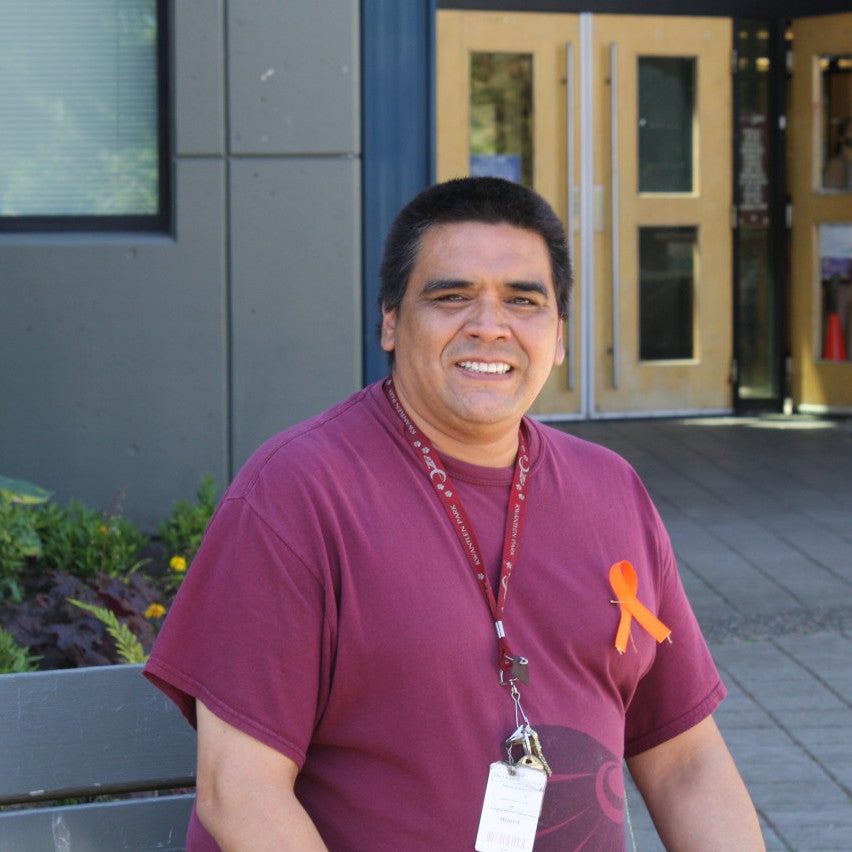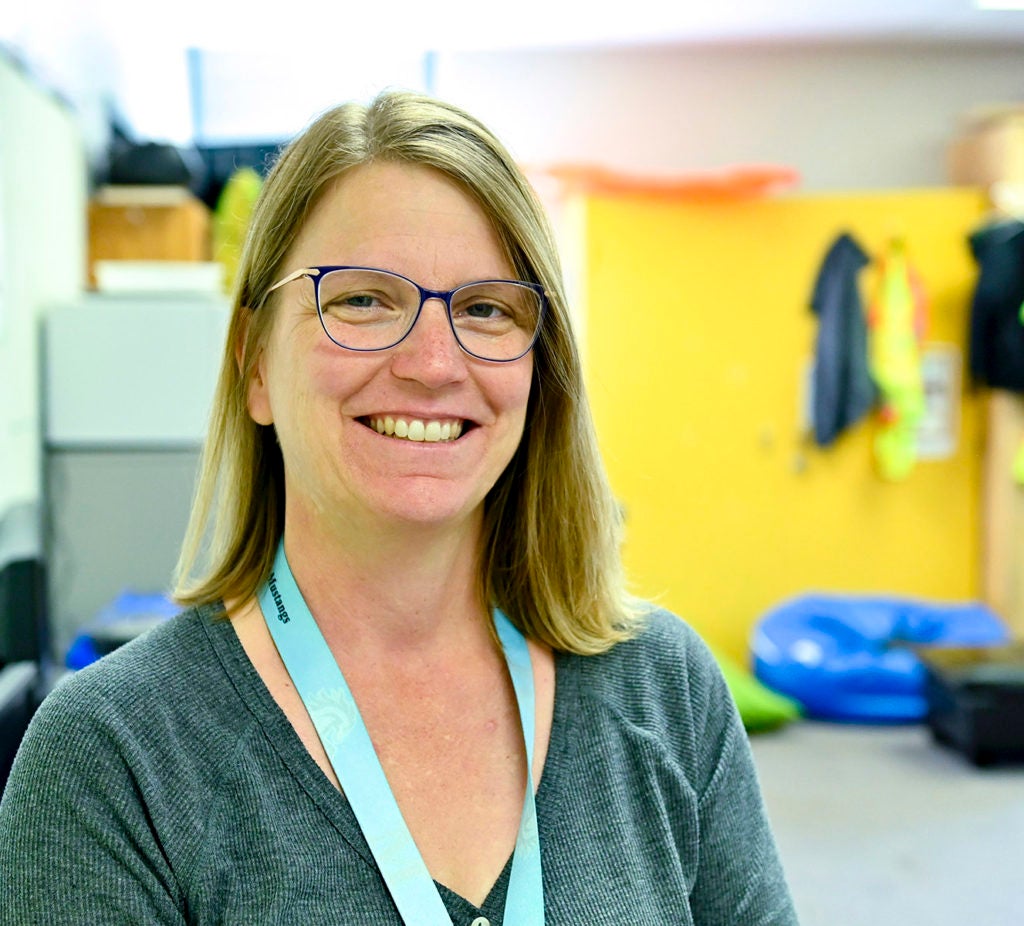
Angela K.
Education Assistant
LA Matheson Secondary
“Being an EA is believing in our students – seeing them as the incredible unique person that they are, celebrating their strengths and helping them in areas where they struggle.”
Being an EA is about believing in our students, presuming competence, believing that they can and want to learn. School can be a difficult environment for a lot of our kids and their very sensitive sensory system. When they become dysregulated, we need to have built a relationship of trust so that they will allow us to help them become regulated again. None of us can learn in an emotional state, so we need to help them with that.
Having the support of other staff and the school community is so very important. Our kids do not have “special needs,” they want to belong and be accepted for who they are just like everyone else. All of us need different types of support, and with the right supports in place our kids can reach the best of their potential.
Seeing them as the incredible unique person that they are and celebrating their strengths and helping them in areas where they struggle is the key.
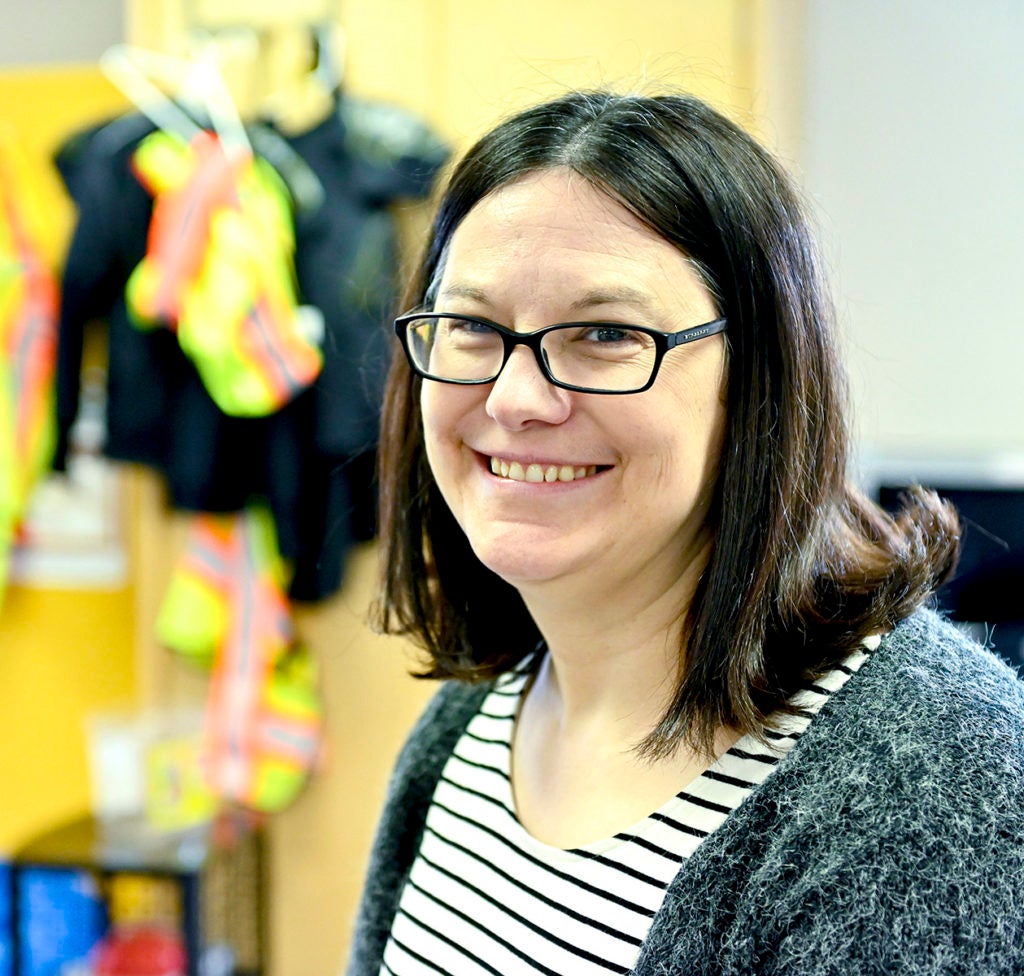
Amber M
ABA Support Worker
Latimer Road Elementary
“My work allows my student to be inclusive in the classroom, to be able to join in with their peer group. I work with non-verbal kiddos so working on communication is really important.”
Seeing the student I work with progress and succeed, inspires me to come to work every day and to be joyful and happy at work. My work allows my student to be inclusive in the classroom, to be able to join in with their peer group. I work with non-verbal kiddos so working on communication is really important. This pandemic has made it really hard to collaborate with other staff members, debrief, and discuss challenges. It’s been really hard because it’s isolating.
It’s concerning and stressful to keep student hours to full-time. A lot of times a student goes from full-time to 20 or 25 hours. ABAs can’t keep those positions because they need to have full-time hours, so a lot of those kids then have home programs but lose consistency with their treatment in the school system. Not everybody works the same way so if a lot of different people are working with that one child, the inconsistency creates a lot of unstructured time for these kiddos that already struggle.
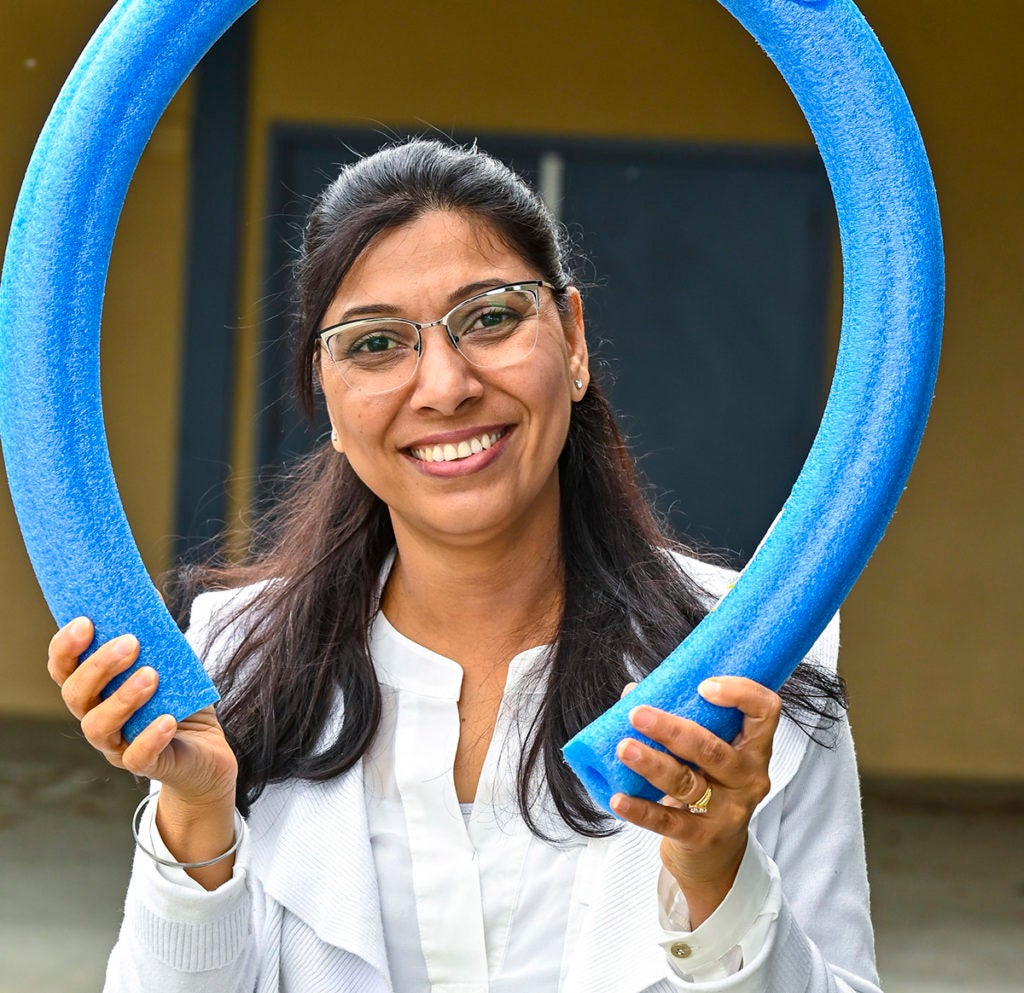
Randeep B.
StrongStart Facilitator
Westerman Elementary
“StrongStart provides a tremendous benefit to the children and families. This program is unique, as it provides a fun and healthy learning environment that benefits the entire family –at no cost. StrongStart makes it easier for new immigrant families to connect with community resources.”
We help children in early years, and also prepare them for kindergarten, using different activities and a variety of materials. We help them learn colours, numbers, shapes, the alphabet and to do simple direction activities in playful ways.
During the pandemic StrongStart looks very different as we are doing group time online. Children and parents/caregivers are engaged with me online for a one-hour session every day that include stories, music and movement, scavenger hunts, colours, numbers, and fine motor activities. Doing online sessions is very challenging with the early years as some families have minimal or no supplies.
As ECEs we need to think outside of the box to provide and offer them activities which are easily accessible at home. For example, making patterns with spoon and fork (learning about Math); teaching concepts of “big” and “small”; looking at textures of fruit and vegetables and other activities using household flyers. We help parents prepare their children for kindergarten by giving them strategies to teach their children self-help skills like putting on shoes, clothing and jackets, opening their lunches, and reading books and telling stories every day. If children struggle during the online session, I offer parents one-on-one sessions with their children to help ease any issues.
I am enthusiastic and love these little ones – their innocence and priceless smiles have inspired me through the years. My journey of learning is continuous and ongoing, each child teaches me something new, and I truly love learning with them each day. I have a deep connection to my work with children and believe that the relationships that we develop together are bridges to lifelong learning.
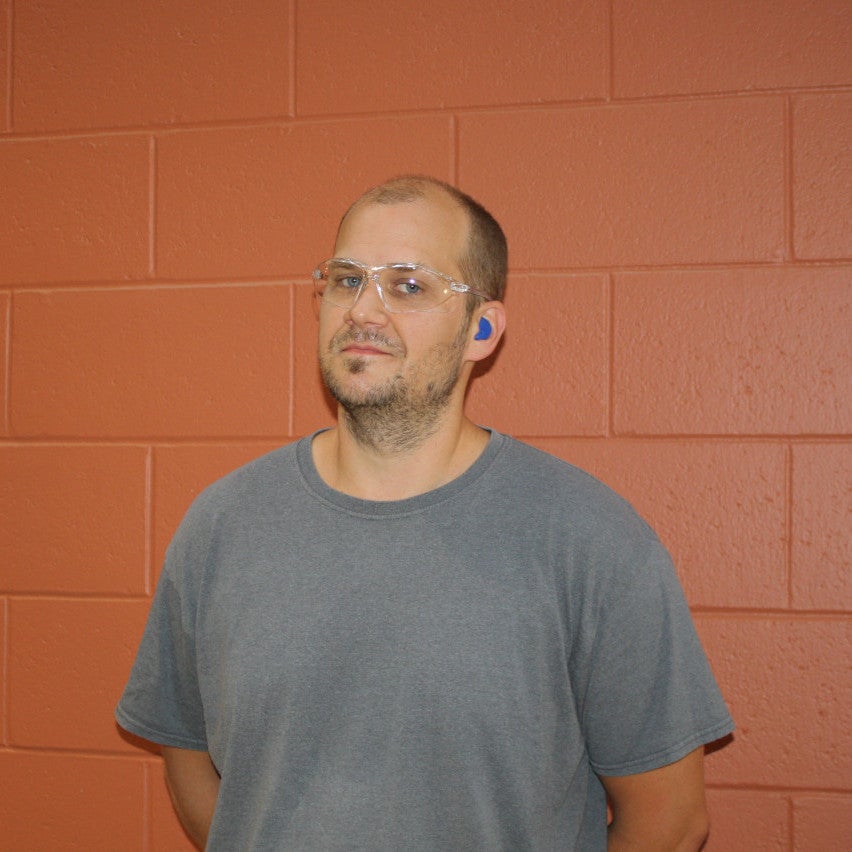
Ben K.
Carpenter
School District 36 / District Facilities Centre
“I’ve always enjoyed working with my hands and problem solving. Working throughout the district I have been to most school sites. “
My day starts at the District Facilities Centre (DFC). I check in with my foreman to see if there is anything urgent, such as vandalism, to take care of. If not, I carry on with what I was working on the day before, whether in the DFC carpentry shop or at a school.
We deal with cabinet and counter repairs and upgrades; install shelving, storage and cloak rooms; build portable stairs and ramps; fix doors and locks; replace ceiling tiles; and repair drywall – just to list a small variety of our jobs.
During the pandemic we’ve had the usual health order restrictions as well as plexiglass barriers in our vehicles. I can understand how traveling to multiple sites would be difficult for some people.
If anything, this past season has reminded me that any job, personal possession or even loved one can be taken from you in a moment. I’m thankful for what I still have and try not to take anything for granted.
Henry L.
Indigenous Child/Youth Care Worker
AHP Matthew Elementary / Kwantlen Park Secondary
This job is very relationship-based. As aboriginal child care workers we do a transition with kids going from elementary to grade 8 and we start working on that relationship with them right away. They know they are coming into a safe space and will have familiar, safe people around. They need a safe space to let it all out – tell us about their boyfriends or girlfriends or things that happen at home – and know they won’t get in trouble with us.
Some of our kids are food insecure and don’t have snack food at home. In the morning when kids come in, we have porridge or granola bars and they can sit and have a snack with us. If they don’t want to go class or might skip, we escort them to class. Sometimes kids also have lunch with us and shoot the breeze about how their day is going so far.
In secondary, I help students with homework or with directions on something the teacher has told me they need to work on, like complete an essay on two-spirited people. I’d help them with research and give them a personal story from my personal experience that could help them. I share a lot of my personal life, so it gives familiarity to the story.
I also do a lot of cultural presentations and sometimes teachers ask me to explain about my language. I tell students that my language is not the language of this area and that there are different types and dialects of languages. I do a lot of orange shirt day presentations and I share what happened to my family in residential school.
I work with the student’s whole family and community. I have strong connections with the kids because they know I know their parents. Some of our families don’t have the tools to be a parent. If they need support in parenting, I refer them to different organizations in the community that can help.
This pandemic has badly impacted my work because it limits the number of students in schools and offices. A lot of students are in a blended learning program and because they don’t respond online, we don’t have a good connection with them. Today we had five kids that wanted to come into the office where I work and our limit is three so we had to ask kids to leave. Kids feel like they got pushed away from their safe space and feel abandoned. It’s very hard to manage so these kids don’t feel neglected or alone.
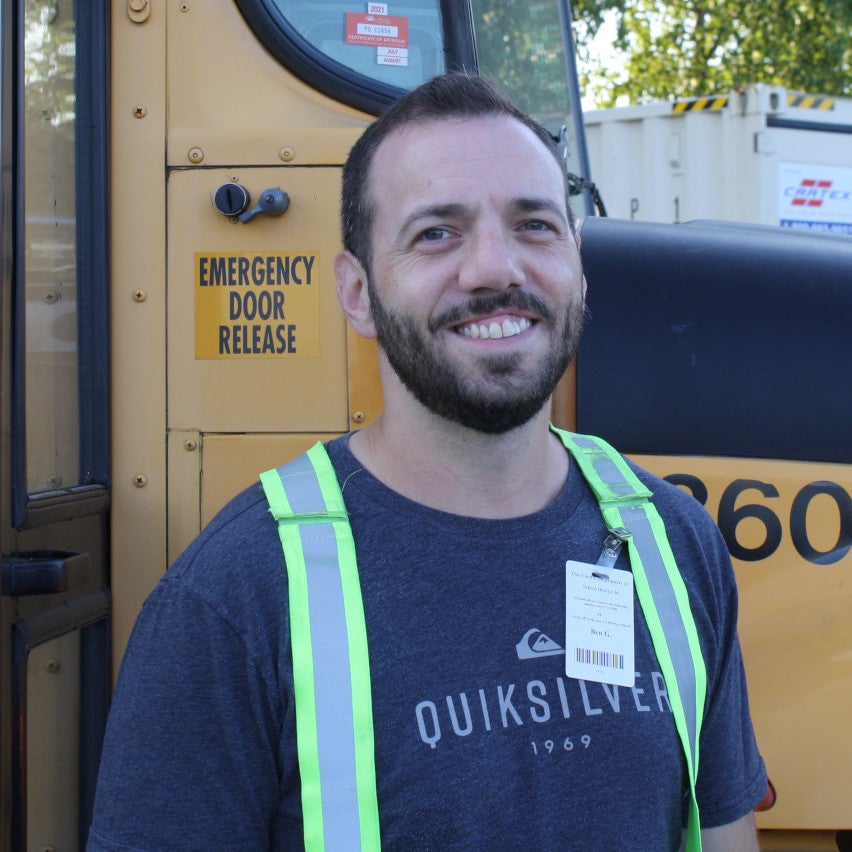
Ben G.
Equipment Operator II / Spare Bus Driver
SD36 Facilities Centre
Spare drivers cover for full-time drivers when they’re away on holidays or on leave. We do their respective bus routes in the morning and afternoon. Most days run quite smoothly; the kids are pretty good for the most part. You sometimes have to remind them of the proper etiquette if someone is getting out of hand or bugging you while you’re driving. Safety is the biggest thing, to make sure everyone is safe and doing what they’re supposed to be doing, which is just taking it easy and relaxing on the way to school.
I really enjoy the equipment operator job. I like that I get to drive all over the city and meet lots of different people. It’s a physical job and I really enjoy that part. It’s great exercise.
There’s lots of driving from school to school. We move and transport anything in the building – furniture, equipment, supplies – anything that needs moving around. We remove old furniture and bring in the new, and deal with lots of moves of classrooms and teachers moves.
I have been doing this work for almost 9 years. The pandemic affected us quite a bit. Thankfully we never stopped.
On the bus we followed extra cleaning procedures, and everyone had to wear a mask. We had to make sure the windows were open a little bit for ventilation and everybody had assigned seating. It was very strict, which was nice in terms of keeping order. We had a little extra work for more detailed cleaning like spraying and wiping high touch areas. For the rest of my work nothing really changed at all, besides we loaded lots of masks and PPE. We were still very needed around the district which felt good.
As a bus driver, getting kids to school safely and on time is the number one goal of our department. Safety is the biggest thing: keeping everyone safe on the bus and the other motorists on the road. We always try to be on time and be as cautious as we can. For my other work, we are support staff, a cog in the wheel that helps keep the machine moving smoothly. We try to be as accommodating as we can and do what we can in and around schools.
